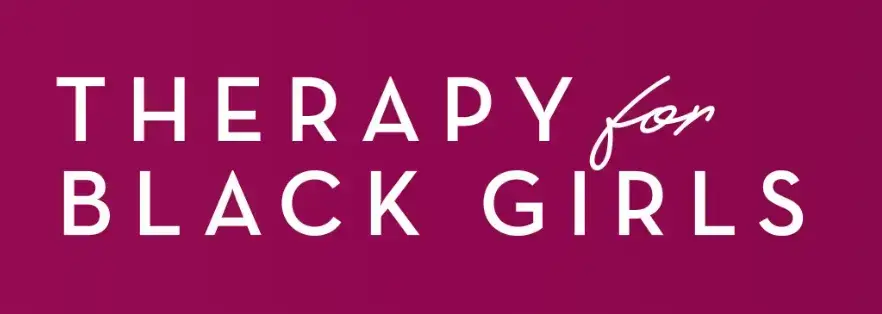Understanding Trauma Bonding: Signs, Stages, and How to Break Free

Trauma bonding happens when an abused person becomes attached to their abuser, most commonly in relationships where abuse is cyclical and repetitive. Contrary to popular belief, trauma bonding is not the bond formed when two people (such as siblings) experience “shared trauma”.
In relationships where emotional and physical abuse occurs, individuals often find themselves inexplicably attached to their abuser. This phenomenon, known as trauma bonding, traps victims in cycles of manipulation, guilt, and control. Understanding trauma bonding is crucial for those seeking to break free from toxic relationships and reclaim their lives. Let’s look at the nature of trauma bonding, exploring its signs, stages, and offering guidance on how to escape these destructive cycles.
What is Trauma Bonding?
Trauma bonding occurs when an abused person forms an unhealthy emotional connection with their abuser. This bond is reinforced through cycles of abuse followed by intermittent positive reinforcement, such as affection or apologies, which confuses the victim and makes it difficult to leave the relationship. The emotional highs and lows create a sense of dependency, making it hard for victims to see the reality of their situation.
Common Signs of Trauma Bonding
Recognizing the signs of trauma bonding is the first step toward breaking free. Some common indicators include:
- Emotional Rollercoaster: Frequent emotional highs and lows, with dramatic conflicts followed by periods of calm.
- Hope for Change: Holding onto moments of kindness as signs that the abuser will change.
- Rationalizing Abuse: Believing that the abuse is deserved or that the victim can change the abuser’s behavior.
- Isolation: The abuser may isolate the victim from friends and family, limiting their perspective on the relationship.
- Dependency: The victim may feel unable to function or find happiness without the abuser.
The Seven Stages of Trauma Bonding
Understanding the stages of trauma bonding can help victims identify the patterns in their relationships:
- Love Bombing: Excessive flattery and praise to win the victim’s trust.
- Trust and Dependency: The abuser fosters dependency by presenting themselves as the victim’s only support.
- Criticism: Gradual criticism erodes the victim’s self-esteem.
- Gaslighting: The abuser manipulates the victim’s perception of reality.
- Resignation and Submission: The victim gives in to avoid conflict, further deepening dependency.
- Loss of Self: The victim’s identity becomes intertwined with the abuser, leading to a loss of self-worth.
- Addiction: The victim becomes emotionally addicted to the cycle of abuse and reconciliation.
Breaking Free from a Trauma Bond
Escaping a trauma bond is challenging, but not impossible. Here are steps to take:
- Seek Support: Reach out to friends, family, or a therapist who understands trauma bonding.
- Establish Boundaries: Begin to set and maintain personal boundaries, even if it feels uncomfortable.
- Reconnect with Yourself: Engage in activities that help rebuild your identity and self-worth.
- Educate Yourself: Learn about trauma bonding to better understand your experiences.
- Plan Your Exit: Create a safe and practical plan to leave the relationship, with the support of trusted individuals.
Common Questions About Trauma Bonding
What is trauma bonding in a relationship?
Trauma bonding is an emotional attachment formed between an abuser and their victim, reinforced by cycles of abuse and positive reinforcement.
How do I know if I'm in a trauma bond?
Signs include feeling trapped, rationalizing abuse, isolation, and experiencing emotional highs and lows.
Why is it hard to leave a trauma bond relationship?
The intermittent positive reinforcement creates a sense of dependency and confusion, making it difficult to leave.
Can trauma bonds be broken?
Yes, with support, education, and a clear plan, trauma bonds can be broken, allowing for recovery and healthier relationships.
Is trauma bonding the same as love?
No, trauma bonding is based on control and manipulation, while love is based on mutual respect and care.
Trauma Bonding Wrap Up
Trauma bonding can feel confusing as it is a complex and damaging aspect of abusive relationships, making it difficult for victims to break free. However, with awareness, support, and a plan, it is possible to escape these toxic bonds and start a journey toward healing. Remember, true love is built on mutual respect, not control and manipulation.
Ready to Start Therapy?

Frequently Asked Questions
About Online Therapy at Mind by Design Counseling
How do I get started as a new client?
New Clients can reach out to us directly via call, text or email here:
What is your cancellation policy?
We ask that clients provide at least 24 hours notice in the event that they need to cancel to avoid the 50% cancellation fee. we understand that life happens and do our best to be flexible & reschedule.
Does my insurance cover my visits?
We provide”Courtesy Billing” for clients who are using the Out-of-network insurance benefits.
Our Insurance Page shares a small blurb about Why We Left Insurance Panels
Do you offer traditional talk therapy?
of course! though we have some unconventional therapy approaches, we are rooted in evidenced based practices. Talk therapy is a major player in the therapy room! See What we Treat and Integrative Services for more information
Is Online Therapy As Effective As In-Person Therapy?
Online therapy is essentially face-to-face counseling, just conducted remotely. Studies show that teletherapy is as effective as traditional counseling. Professional organizations and state governments recognize its benefits and have set regulations for it. However, like any therapy, its success in achieving your goals isn’t guaranteed. It’s important to discuss with your therapist whether teletherapy is working for you.
Can I Change Therapists If I'm Not Happy?
Yes, you can switch therapists to another provider within the practice, or we can provide you a referral if preferred. We want to ensure that your time and effort are well spent, and that you are getting the relief you need, that’s why we work collaboratively with each other in the practice, as well as outside therapists who we know and trust.
How Do I Know If Therapy Is Helping?
You should feel like you’re making progress. Signs it’s working include:
Feeling comfortable talking to your therapist
Your therapist respects boundaries
You’re moving towards your goals
You feel listened to
You’re doing better in life
Your self-esteem is getting better
Is Online Therapy Easy to Use for Non-Tech-Savvy People?
Yes, it’s pretty simple to access sessions. You’ll need basic internet skills, such as opening and visiting the patient link sent to you via email. It’s similar to video chatting like Facetime or Zoom. We can also walk you through it on the phone the first time to ensure a strong connection
What Questions Should I Ask My New Therapist?
Feel free to ask anything. Some good questions are:
- How often will we meet?
- What do you specialize in?
- What experience do you have with my issue?
- What outcomes can I expect?
- How will I know I’m progressing?
- How long do you usually work with clients?
- How will we set my treatment goals?
How Should I Prepare for My First Session?
Showing up is all that you need to do! But if you really want to get the most out of session, it could help to take some time to think about what you want from therapy. It helps to write down your goals, questions you have or things that you feel are important to share.
What is the difference between associate therapists & fully licensed therapists?
Our Qualifications:
Our founder, Rebecca Sidoti, is a highly qualified, state-licensed therapist and supervisor with extensive training in anxiety related disorders and innovative treatment such as Ketamine Therapy. Mind by Design Counseling adheres to standards set by the our governing counseling boards.
To see each providers credentials, training and licenses, visit our “Meet the Therapists” Page to learn more.
- LAC/LSW are therapists who may practice clinical work under the supervision of a fully licensed therapist.
- LPC/LCSW are therapists who have completed the necessary clinical hours post-graduation under supervision and can practice clinical work independently.
What Geographic Areas Are Served?
Currently, we serve clients in New Jersey and are expanding to other states as telehealth laws evolve. While telehealth offers the convenience of attending sessions from anywhere, state laws require clients to be in-state during their session.
Is Virtual Counseling Suitable for Everyone?
Online therapy might not be as effective for individuals with chronic suicidal thoughts, severe trauma, significant mental health history, or those recently in intensive care. Such cases often benefit more from traditional, in-person counseling. We’ll help you decide if our online services are right for you during your intake and evaluation.
What Equipment is Needed for Online Therapy?
To join a session, log in using the credentials we provide. No downloads are needed. Our platform, compatible with both individual and group sessions, requires:
A computer or mobile device with a webcam and internet access.
We’ll help you test your setup before your first appointment to ensure a reliable connection. iOS users should use the Safari browser for mobile and tablet sessions.
What Questions Will Therapists Ask Me?
It depends on your goals. Expect questions about your thoughts, feelings, relationships, work, school, and health. They’ll ask to understand your therapy goals.
How Do You Keep Client Information Secure?
Security and Confidentiality of Sessions:
Your privacy is crucial to us. We use TherapyNotes, a HIPAA-compliant platform, ensuring secure and confidential teletherapy sessions. This platform’s security features include encrypted video connections, secure data transfers, and encrypted databases, ensuring your information is safe at all times.
What is VRT used for?
we use VRT to support Exposure Therapy, a long standing traditional therapy modality to treat phobias, anxiety and stress. we send a headset directly to your home so you can access VRT from anywhere.
VRT not only helps with exposure therapy for phobias, but is great for ADHD, mindfulness, PTSD and social anxiety.













